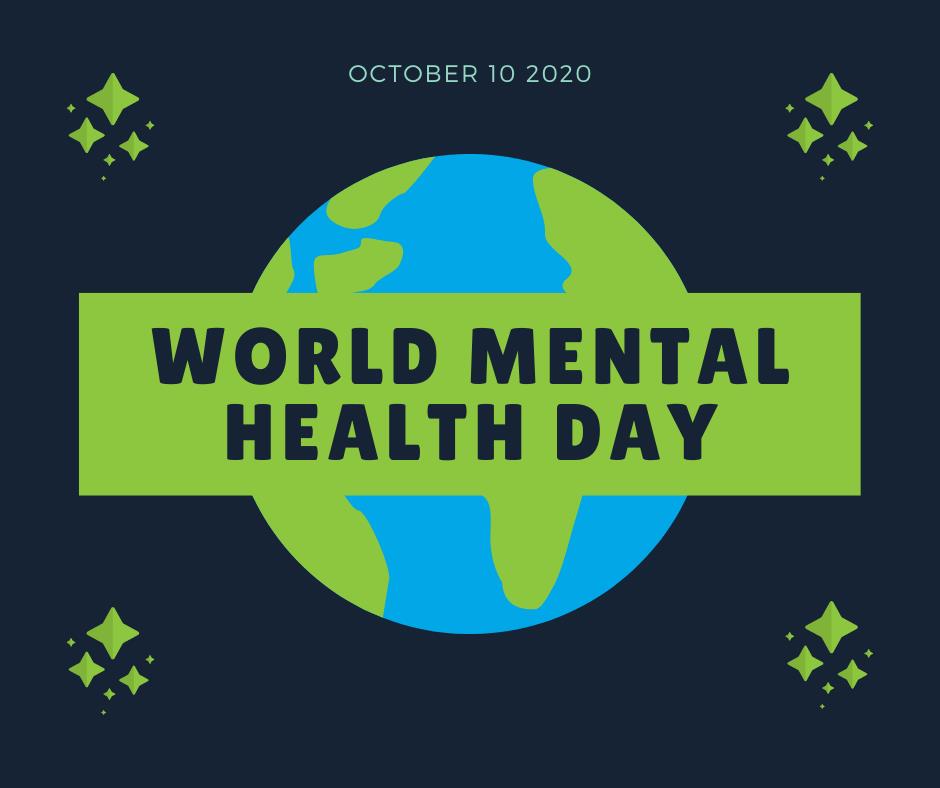World Mental Health Day is October 10th, and this year in particular is a valuable time to open the conversation about mental and emotional health.
Psychological Impacts of COVID-19
Although life has seemingly started to move on and regain a degree of normalcy, the implications of this global pandemic are still prevalent. Many people are still dealing with the damage, collateral or direct, caused by canceled plans, job loss, isolation, financial struggle, lack of social connection, and the virus itself.
An article published by Online Counseling Programs looked at the way 2020 has influenced and affected Americans’ mental health. Rose Kormanyos, MA, IMFT, a marriage and family therapist from Ohio, explains the overall influences this situation has on mental health.
“People are experiencing hidden grief and loss…it’s bringing up the emotions that we associate with the stages of grief, like anger and depression,” said Kormanyos. “Whatever tough emotional state our bodies are already prone to, such as anxiety or depression, we’re seeing in an intensified state right now.”
Although there are numerous mental health conditions, the three most common in Americans are anxiety disorders, major depressive disorder, and bipolar disorder, all of which can be triggered and perpetuated by recent events.
When asked about coping with these difficult feelings, Kormanyos emphasized the importance of accepting it and then challenging these behaviors so you can get back on track.
“Just be understanding with yourself like, ‘Okay, I understand why this is hard. This is a normal way that my brain is responding to a tough situation,’” she said.
Coping Mechanisms
Similar to physical health, a key role in keeping your mentality healthy is to strengthen it by engaging in mindful activities that release mood-boosting chemicals in the brain.
Some days you may not have the mental capacity to keep your spirits up, which is okay—this is where acceptance comes into play. But try not to sit in your feelings or grief for too long to the point where you get comfortable. Acknowledge they’re there and honor the emotions that come with it, but try not to unpack your bags and move into that state of mind.
Free mood-boosting activities that can help you cope with a hard day:
- Go for a walk or sit outside
- Stretch
- Meditate
- Dive into a book with a happy storyline
- Watch your favorite lighthearted movie
- Paint or draw
- Journal
- Take a nap
- Call a friend to chat
- Listen to upbeat music
- Make a list of things you’re grateful for
Although these things are not a cure by any stretch of the imagination, temporary relief can often be found in spending time doing things you enjoy!
What to Look for
Of course, there may come a point where these things are not helping the way you wish they would, and that’s also okay. If your efforts alone aren’t making a difference in how you feel, it may be time to turn to the professionals—a very common and noble thing to do.
Ten mental health warning signs to watch for include:
- Excessive worrying or sadness
- Changes in eating habits or appetite
- Prolonged feelings of anger or irritability
- Avoiding friends or loved ones
- Overusing substances like drugs or alcohol
- Inability to carry out day to day tasks
- Overwhelmed by daily problems or stress
- Feeling helpless or hopeless
- Suicidal thoughts
- Changes in sleeping patterns
If you start to notice yourself or a loved one slip into an unhealthy mental state, it’s necessary to either seek or offer help.
Assistance
Struggling with mental health can feel isolating and defeating, but there are resources available to help. The most valuable thing you can do for yourself and others is to communicate. You can start by confiding in a friend, relative, or person you trust about how you’ve been feeling. The next step should be to reach out to a therapist or psychologist for further assistance.
Unlike physical health conditions, there are no medical tests that determine mental health conditions. Instead, a mental health professional can give a diagnosis—if needed—based on patterns and behaviors they examine. Once the “issue” is identified, a solution can be discussed, and for many, this is an extremely relieving process.
Treatment for mental health conditions may include therapy, medication, social support, educational resources, and more, depending on what the best course of action is for the individual. And it’s important to note that many people regularly participate in therapy without a diagnosis or mental health condition.
There are many helpful online resources for finding a good match when looking for a therapist. For example, Psychologytoday.com lists the therapists in your area, as well as important information like who they are, their specialties, the cost per session, and more.
If you are experiencing thoughts of suicide, please seek help immediately. You can speak to someone anonymously at any time on the national suicide prevention lifeline, 1-800-273-8255.
We urge our readers to invest in your mental health the same way you would your physical health, by evaluating changes you’re experiencing and getting help when needed. If you know of someone in your life who is struggling, we encourage you to use World Mental Health day as an opportunity to check in with them and lend a helping hand. In these unprecedented times, we could all use a little more support!




Comments are closed